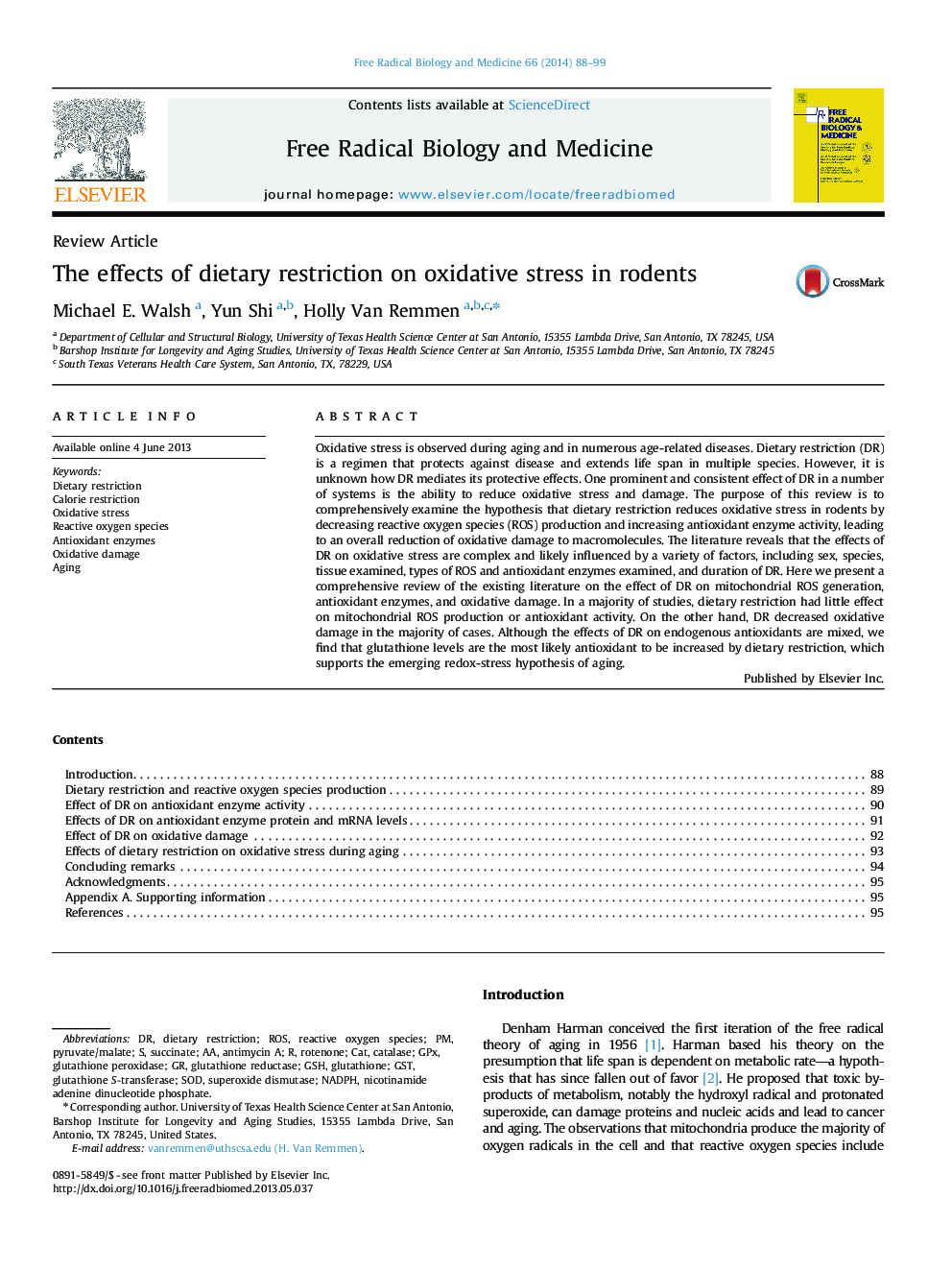| Article ID | Journal | Published Year | Pages | File Type |
|---|---|---|---|---|
| 1908330 | Free Radical Biology and Medicine | 2014 | 12 Pages |
• DR tends to have no effect but otherwise reduces mitochondrial ROS production.•DR tends to have no effect but otherwise increases endogenous antioxidants.•DR often reduces oxidative damage to macromolecules.•DR tends to increase redox antioxidants like glutathione.•DR during aging is more likely to affect oxidative stress parameters.
Oxidative stress is observed during aging and in numerous age-related diseases. Dietary restriction (DR) is a regimen that protects against disease and extends life span in multiple species. However, it is unknown how DR mediates its protective effects. One prominent and consistent effect of DR in a number of systems is the ability to reduce oxidative stress and damage. The purpose of this review is to comprehensively examine the hypothesis that dietary restriction reduces oxidative stress in rodents by decreasing reactive oxygen species (ROS) production and increasing antioxidant enzyme activity, leading to an overall reduction of oxidative damage to macromolecules. The literature reveals that the effects of DR on oxidative stress are complex and likely influenced by a variety of factors, including sex, species, tissue examined, types of ROS and antioxidant enzymes examined, and duration of DR. Here we present a comprehensive review of the existing literature on the effect of DR on mitochondrial ROS generation, antioxidant enzymes, and oxidative damage. In a majority of studies, dietary restriction had little effect on mitochondrial ROS production or antioxidant activity. On the other hand, DR decreased oxidative damage in the majority of cases. Although the effects of DR on endogenous antioxidants are mixed, we find that glutathione levels are the most likely antioxidant to be increased by dietary restriction, which supports the emerging redox-stress hypothesis of aging.
Graphical abstractFigure optionsDownload full-size imageDownload high-quality image (72 K)Download as PowerPoint slide
